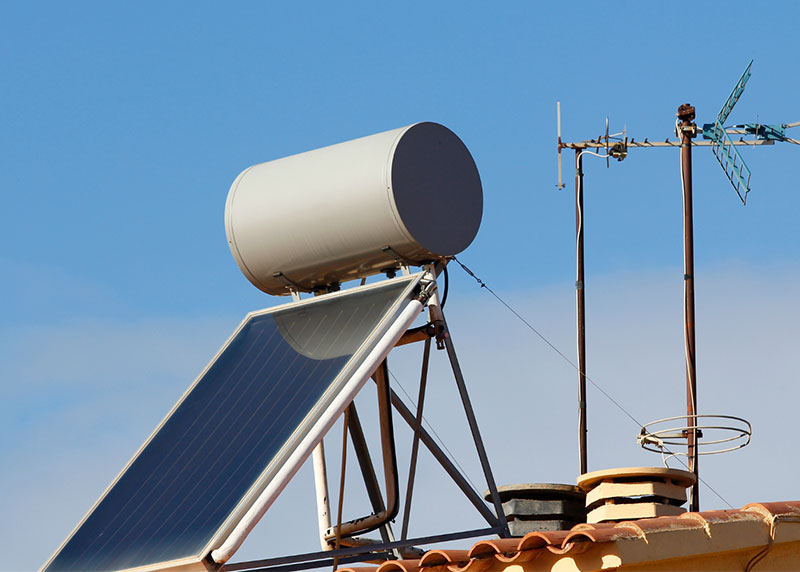What is PV Solar?
PV (photovoltaic) solar panels are designed to convert sunlight directly into electricity. They work through the photovoltaic effect, where solar cells in the panels absorb photons from sunlight and release electrons, creating an electric current. PV systems are versatile, powering homes, businesses, and even vehicles.
What is Thermal Solar?
Thermal solar systems, also known as solar thermal or solar heating systems, use the sun’s heat to produce hot water or steam. They consist of collectors that absorb solar heat, which is then transferred to a fluid—either liquid or air—used to heat spaces, water, or even swimming pools. These systems are highly efficient for heating applications and are commonly used in residential, commercial, and industrial settings to reduce reliance on conventional heating fuels.
How Do PV and Thermal Solar Differ in Function?
The primary difference between PV and thermal solar systems lies in their functions. PV solar panels generate electricity suitable for a wide range of applications, whereas thermal solar systems are specialised in converting solar energy into heat. This specialisation makes thermal systems excellent for water heaters and space heating, but limits their use to these specific needs.
Which System is More Efficient?
Efficiency is a key consideration when choosing between PV and thermal solar. PV systems are generally more versatile and can adapt to various energy needs by providing electricity. Thermal solar systems, while highly efficient in their specific function of heating, do not generate electricity. Your choice will depend on whether you need a broad or specialised energy solution.
What Are the Installation Differences?
Installation requirements vary between the two systems. PV solar panels often involve more complex electrical work and usually require a professional electrician for safe installation. On the other hand, thermal solar systems focus on plumbing and heat transfer, necessitating expertise in integrating these systems into your home’s existing water heating or space heating infrastructure.
How Do Costs Compare?
Initial costs for PV solar panels are generally higher due to the complexity and technology involved. However, they offer broad applications, contributing to long-term savings on energy bills. Thermal solar systems might have lower upfront costs and immediate efficiency gains for heating, but won’t offer electricity generation. Both systems have the potential for energy savings, making them valuable investments in sustainability.
What About Maintenance?
Maintenance is another factor to consider. PV solar panels are relatively low maintenance, requiring occasional cleaning and annual inspections to ensure optimal performance. Thermal solar systems may require more regular maintenance due to the plumbing components involved, such as checking for leaks or ensuring the heat transfer fluid remains effective.
Which Should You Choose?
Ultimately, the choice between PV and thermal solar systems depends on your specific energy needs. If you’re looking for a versatile solution to cover a broad range of electricity uses, PV solar panels may be a better option. For specialised heating applications, thermal solar could be more suitable. Consider your long-term goals and current energy demands to make the best decision.
Considering Solar? Consult with Renaissance Solar!
Choosing the right solar system can be challenging, but you don’t have to make the decision alone. Contact Renaissance Solar for expert advice tailored to your needs. Our team can help you navigate the options and find the perfect solar solution, setting you on a path towards sustainable and green living today.

